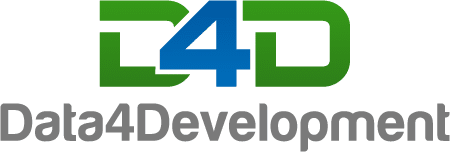The International Aid Transparency Initiative, or IATI for short, first saw the light of day during the third High Level Forum of Aid Effectiveness in Accra. This forum took place during a time in which the international aid landscape was in transition. Private foundations, like the Bill and Melinda Gates foundation were gaining momentum. The Indian and Chinese government started providing funding and the Millennium Development Goals were on their halfway point.
In the midst of this changing landscape, the IATI registry was born out of the growing demand for increased accountability within the aid sector by funders, taxpayers and governments. The concept of transparency in the international aid sector corresponded with the momentum gained by the Open Government movement. Open Government or Gov 2.0 refers to the goal of having governments use open technologies for collaboration to improve efficiency and transparency of government services.
Over the last ten years, the IATI registry developed from just facilitating transparency to increasingly becoming a tool for monitoring and reporting to funders. In 2011 the first IATI publication was made by DFID: the Department for International Development from the British government. In November 2012, the first milestone of 100 publishers was reached. In December 2016, 500 organizations were uploading to IATI.
The surges in civil society organizations, multilateral institutions and governments who publish to IATI, was partly due to several funders requiring IATI publications for organizations who were awarded funding for their projects. This made IATI develop towards a monitoring and reporting tool, as well as creating more transparency in the development sector.
Last month IATI published their 10th annual report, a truly celebratory moment, as at the moment of writing there are 998 publishers to the IATI database. 998 publishers who share the details of their expenditure and activities of over 1 million (humanitarian) projects. This data and information can be used in a number of ways including: advocacy, coordination, planning and resource allocation, as well as creating opportunities for better journalism and research.
We, at Data4Development strongly believe in transparency in the aid and development sector, being of vital importance in reaching the Sustainable Development Goals in 2030. Not only through sharing information for development cooperation, but we also believe in the power of making data driven decisions. Therefore, we developed a tool to help organizations publish their data to the IATI registry and make the process as easy as possible: the Spreadsheets2IATI converter.
We furthermore offer IATI Publisher Starter Training, which can be adapted to your organization’s learning goals to get you started with publishing as soon as possible. If you are interested in our other IATI services, please check out our product page or contact us through [email protected].
Is your organization ready to join the transparency movement?
